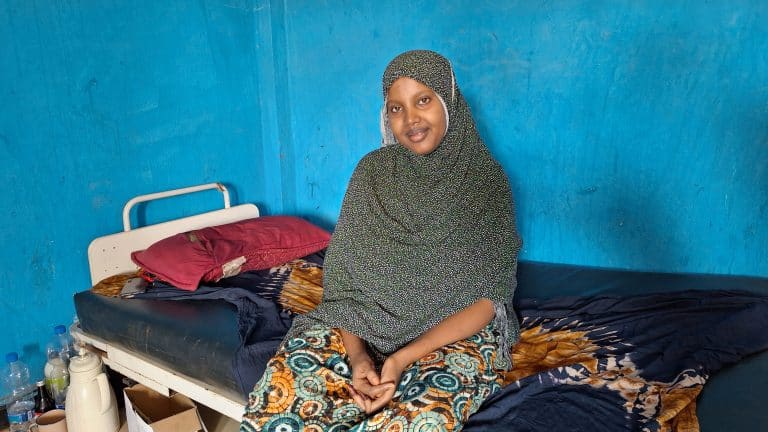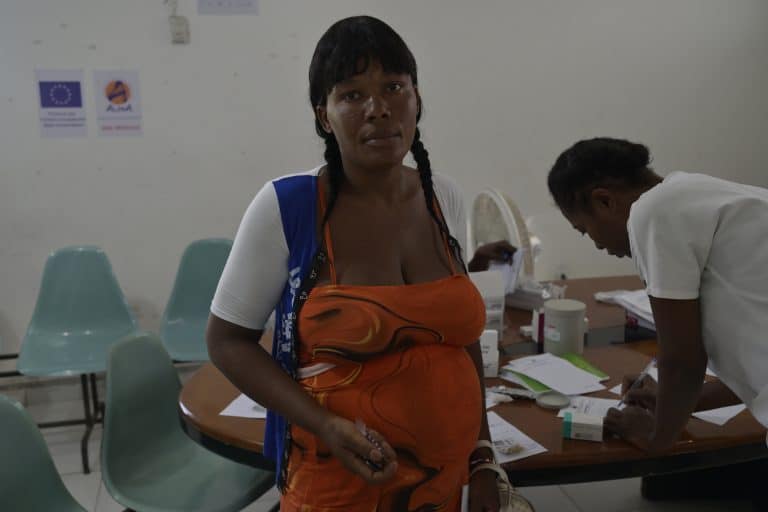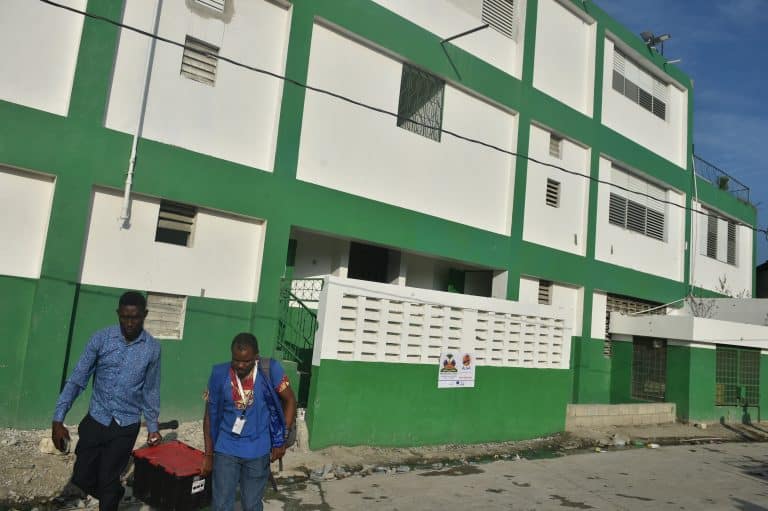“Pregnant women who need emergency medical assistance have a real problem accessing health care,” says Dr. Adolphe Batundi Bindu, ALIMA’s referring for the Timbuktu Region.
The Timbuktu Region is a health care desert. In the Goundam medical district there are 1.9 health care professionals per 100,000 inhabitants, according to the WHO standard that number should be 23.
“Women rarely give birth in a health center. Those who stay home risk complications that can put their lives, and that of their babies, in danger. A woman should not die when giving life,” continues Dr. Batundi.
Hawa lives in Goundam, and has decided to give birth at home. As she went into labor, the traditional midwife noticed that the baby was in the wrong position, with its arm raised. Hawa was rushed to th referral hospital in Goundam, where a cesarean was performed, saving the lives of both Hawa and her baby.
While Hawa was able to get health care in time, for many patients that care comes too late. The first cause of delay is cultural: in these communities, women do not have the right to make the decision of whether or not they can go to a health center.
A second cause of delayed care is due to transport: health centers can be more than 100 kilometers away, and few vehicles pass through the villages. Many areas are not covered by ambulances. Families do not risk travelling at night on unsafe roads, as there are armed groups and bandits active in the area.
“Even though the attacks by armed groups tend to target the Malian army and the MINUSMA, the attacks often cause collateral damage among civilians. People are also wary of bandits, who terrorize the area with robberies,” recounts Dr. Batundi.
The third reason for delayed care, is simply the inaccessibility of care: some health centers are not operational, and some health workers are not qualified to detect complication and refer patients in time.
“Some centers lack qualified personnel, and pregnant women are sometimes referred to another health center, which can be 100 kilometers away,” explains Dr. Batundi.
To solve the first two cultural and logistical causes of delay, ALIMA’s teams are working with traditional midwives, helping them to recognize the signs of danger and encourage them to accompany women in danger to the health centers.
To tackle the problem of inaccessibility, ALIMA is supporting the Ministry of Health in two hospitals and 35 community health centers in the Timbuktu Region, 10 of which are capable of providing basic emergency obstetric and neonatal care. In the supported health centers, the teams provide quality primary and secondary care to the local populations, and train the government’s health workers in identifying high-risk pregnancies and early identification and treatment of complications.
Pregnant women can be accompanied throughout their pregnancy, with a complete care package free of charge which includes up to four prenatal consultations, an assisted childbirth, transfer to a hospital if needed, hospital treatment of complications, with a caesarean if necessary, a postnatal consultation and routine newborn health care.
Dr. Batundi concludes, “To improve the access to health care, we have also set up a referral system: patients can be transported by ambulance to the hospitals in Dire and Goundam, or be reimbursed for transport costs from the primary health center to the hospital.”
ALIMA (the Alliance for International Medical Action) is a medical humanitarian organization who works hand in hand with a network of local medical organizations to provide quality health care to the most vulnerable people in emergency situation and chronic crises. ALIMA and its partners also conduct innovative research projects to improve humanitarian medicine.
Based in Dakar, Senegal, ALIMA has treated more than 2 million patients in 12 countries since it was founded in 2009, and has launched 10 research projects focusing on malnutrition, malaria and the Ebola virus.
In Mali, ALIMA and its partner AMCP (Medical Alliance Against Malaria) are supporting the Ministry of Health in the Timbuktu and Koulikoro Regions. In the Timbuktu Region, medical teams have provided medical care to more than 135,000 patients since January of 2107. 11,300 women have benefitted from sexual and reproductive health programs, and 2,850 benefitted from assisted childbirths.
This project is able to help the population thanks to funding from the EU’s humanitarian aid department (ECHO) and DFID.





